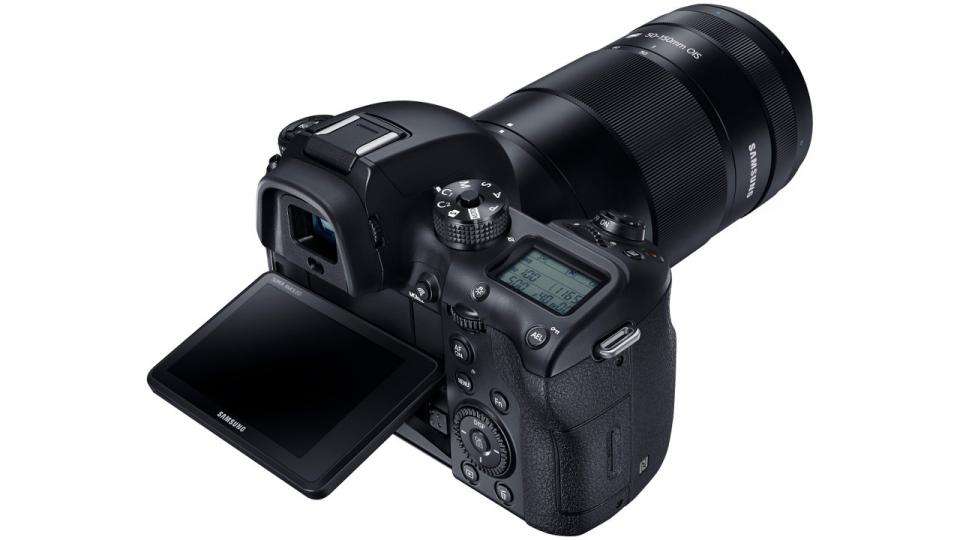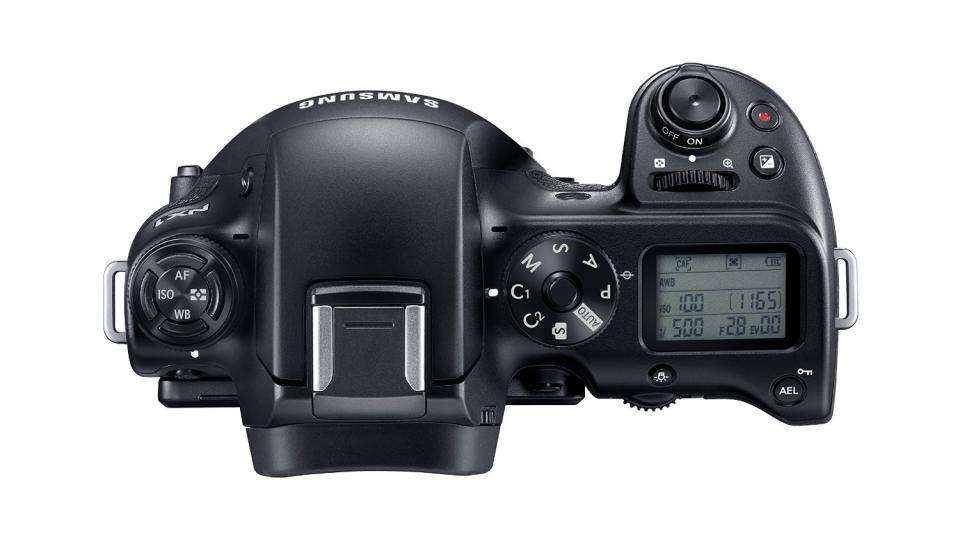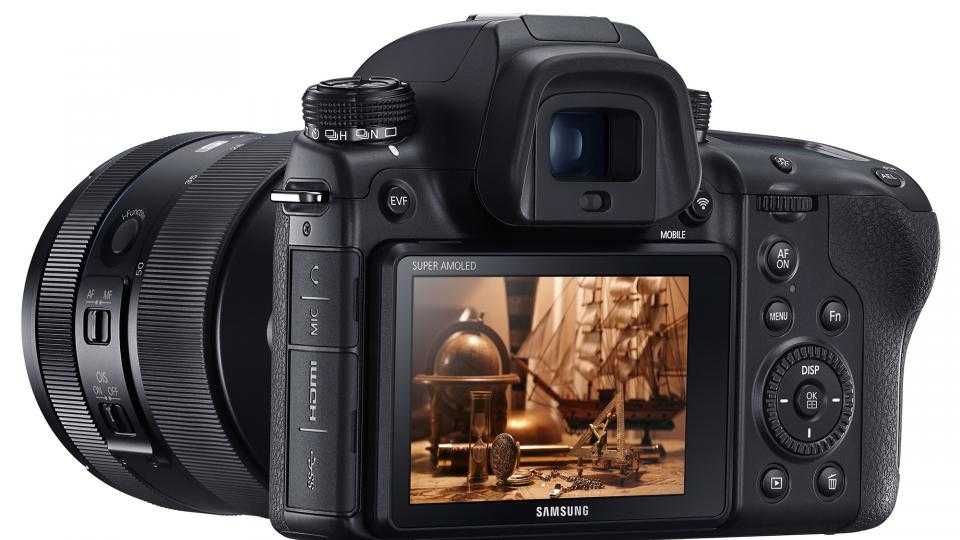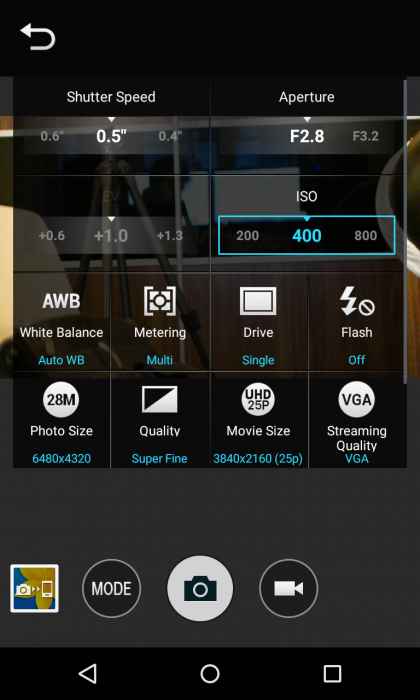Samsung NX cameras have been steadily improving over the last couple of years, but we've mostly admired them for their dependable quality and keen prices rather than for outstanding features. The NX1 looks set to change this, though. It's a significant step up from its predecessors in almost every respect, from image and video quality to performance and ergonomics. It's also significantly more expensive, with a body-only price that puts it in competition with entry-level full-frame SLRs. The NX1 must also compete with the Panasonic GH4 , Fujifilm X-T1 and the Sony a7 series of compact system cameras (CSCs). It's a tall order, but one that the NX1 has no trouble living up to.
The specifications read like a wish list of advanced features. The 28-megapixel sensor offers the highest resolution to date for this sensor size, and includes 205 phase-detect autofocus points for lightning fast autofocus. Burst shooting is at an astonishing 15fps with continuous autofocus. The magnesium alloy body is weather sealed and covered with buttons and dials. Both the rear screen and electronic viewfinder (EVF) use OLED technology for deep contrast and excellent viewing angles, and their high resolutions mean they're pin sharp. The rear screen tilts up and down and is touch-sensitive. There's also a passive, backlit LCD screen for relaying settings. Video recording is at resolutions up to 4K.

With so many alluring features, it's easy to see where your money is going. We can always find something to moan about, though, so let's get them over and done with.
There's no PC sync socket for triggering studio flashes. It's easy enough to use an adapter in the hotshoe, but a dedicated socket would be neater. The 500-shot battery life is relatively modest at this price, and in-camera charging via the USB port means it's not possible to shoot with one battery while charging another. An optional vertical grip (ED-VGNX01) helps here by housing an additional battery, and it's keenly priced at around £180. Additional batteries cost around £50 and an external charger is available for £25.
Ergonomics and controls
We've always admired Samsung NX cameras' controls, and the NX1 lives up to the highest expectations. It's a big camera – much bigger than its predecessors, and its controls and ergonomics are much closer to a mid-price SLR than other CSCs.

There are dual command dials plus a rear wheel for direct access to exposure settings. The wheel can be assigned to exposure compensation or ISO speed, among other options. There's a dedicated dial to the left of the viewfinder for drive mode, and four buttons perched on top for ISO speed, autofocus mode, metering mode and white balance. An AF On button means it's possible to assign autofocus and shutter release to separate buttons, thereby only refocusing when necessary. With buttons for exposure compensation, DOF preview, AE Lock and various customisable buttons, there's nothing left to be desired. The layout is excellent too, with controls that are easy to locate and adjust while using the viewfinder. The dials themselves are well designed, with just the right amount of resistance and textured for a firm grip.

We also appreciated the Custom focus range limiter on the 50-150mm f/2.8 lens we were sent to test with. Flipping a switch on the lens barrel let us limit the minimum and maximum focus distances with the dual command dial, with the help of an on-screen readout in metres and feet and a marker to show the current focus distance. The Sony a77 Mark II includes a similar feature that works with any attached lens, whereas here it's only available on this lens, which costs £1200.
Incidentally, this is one of two new lenses that match the NX1's weather-proofing credentials, the other being an 16-50mm f/2-2.8, which costs £940. These prices are in line with comparable lenses for Micro Four Thirds and Sony FE mounts. There are now 15 Samsung lenses for the NX mount, and no significant gaps in the range except for long telephotos.
Another button on the back of the camera accesses Wi-Fi functions. NFC is built in for automatic configuration with compatible Android devices. The NX1 also includes Bluetooth, which establishes a constant connection between the camera and Android device whenever both devices are on. That means image transfers and the remote viewfinder mode can be launched directly from the app rather than having to launch them on both the camera and the app. There's also an option to trigger the shutter via Bluetooth, albeit without a remote viewfinder function.

There's a risk that the NX1's wireless features serve more to complicate than simplify the process. We had to install three Android apps, two of which ran constantly on our Android phone, and which seemed to drain the phone's battery. Launching the wireless features from the phone still wasn't particularly quick, and it often took a couple of attempts to get them to connect.
